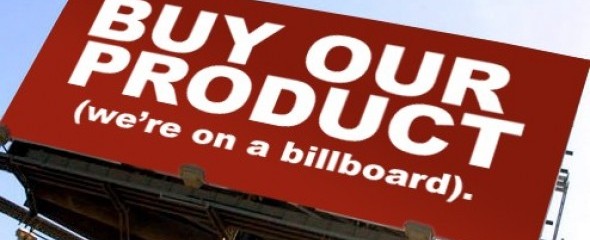
Regulation City.
There has been a considerable amount of OGOT (online gnashing of teeth) over the last month since the Australian Advertising Standards Board ruled that companies are responsible for comments on their Facebook pages and therefore must comply with industry self-regulation and consumer protection laws. Those interested can read the ruling here.
In brief;
The Board considered that the Facebook site of an advertiser is a marketing communication tool over which the advertiser has a reasonable degree of control and could be considered to draw the attention of a segment of the public to a product in a manner calculated to promote or oppose directly or indirectly that product. The Board determined that the provisions of the Code apply to an advertiser’s Facebook page. As a Facebook page can be used to engage with customers, the Board further considered that the Code applies to the content generated by the advertisers as well as material or comments posted by users or friends.
The upshot is – don’t just keep yourself nice, ensure that the company you keep online on is equally as well behaved.
Decisions made by this board are not legally enforceable. However, the ACCC supported the Board’s ruling warning that ‘large’ companies that did not remove false and misleading comments from their brands’ Facebook pages within 24 hours face potential court action. More on the ACCC decision here.
So why the online gnashing of teeth?
The gnashing has come from two very polarised camps. Those concerned about the increased resourcing that these decisions would thrust upon businesses (especially SMEs) and those who were concerned that this kind of regulation would impact the freedom of speech we enjoy via user-generated digital content.
Common sense.
Fundamentally the ruling does not fly in the face of what an organisation should wish to achieve with its online presence. A Facebook page is an extension of its brand and the nature of the conversations held on the page is also a direct reflection of this. Anyone who invests time engaging with your online presence whether it be liking a page, providing feedback or sharing your content is supporting your organisation to some degree – being a brand ambassador. Why would you want someone making racist, homophobic or discriminatory comments linked to your brand? Organisations have control over the content that is placed on their pages. Get them off as soon as possible using your ‘online community guidelines’ as a point of reference.
Online community guidelines are an important foundation of every Facebook page, providing those interacting with the site an explicit list of acceptable and non-acceptable behaviours. This provides an easy point of reference to manage all unacceptable online behaviour. (This is not to be confused with deleting feedback of which the organisation is not proud.)
A community manager should always monitor the commentary on their online platforms also. This is not only to ensure that we rid our pages of unsavory types but to suck up all the good stuff – feedback, support, critiques and ideas. There are simple tools to ensure that these activities are not resource intensive.
There are few instances where common sense does not prevail in the world of social media and this is another example.
Evolution.
The most challenging aspect of this issue for me was not around the rulings surrounding this case but the fact that the Advertising Standards Board now consider a Facebook page as ‘advertising’. This is a considerable shift from what I consider to be an advertisement. These to me form part of the right hand column of my view on Facebook (normally telling me that I am une femme d’un certain âge and now require some kind of beauty serum). Is the way we use both text and multi media to develop online conversations around a brand really advertising? Is this the evolution of advertising? What do you think?
Kate maintains that social media is a channel for effective stakeholder and customer engagement; so much so that she is known as the Director of Engagement. She loves to show people how this works.

